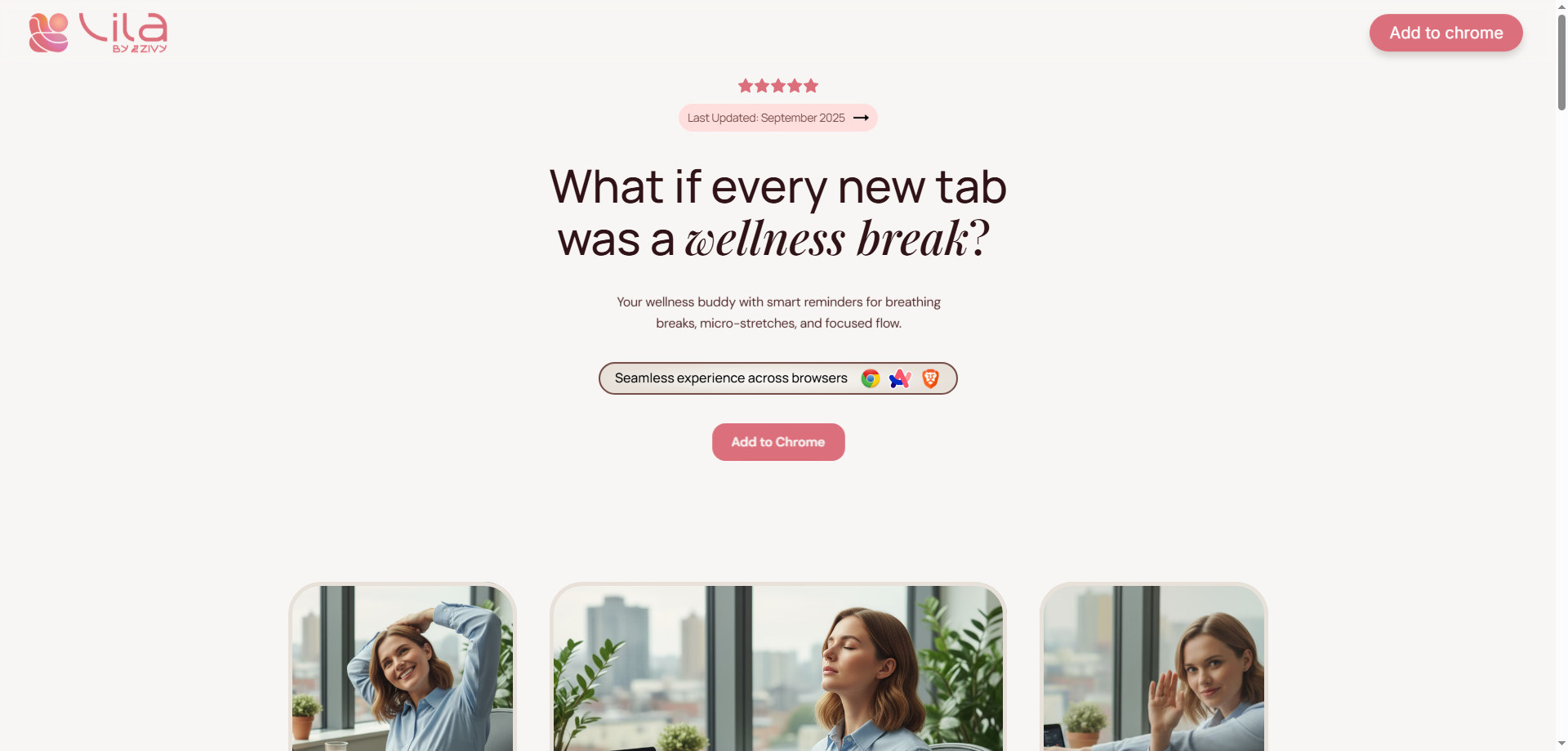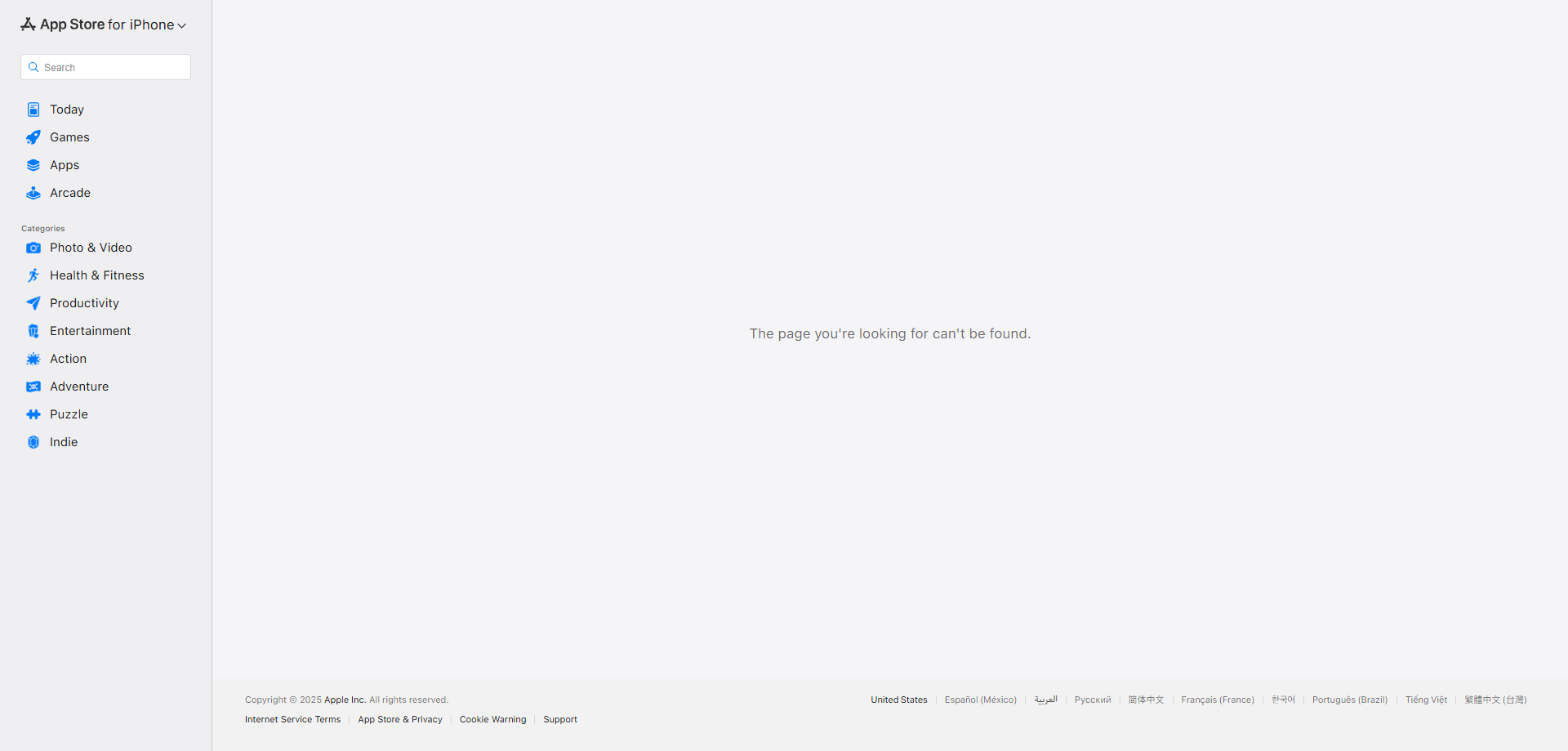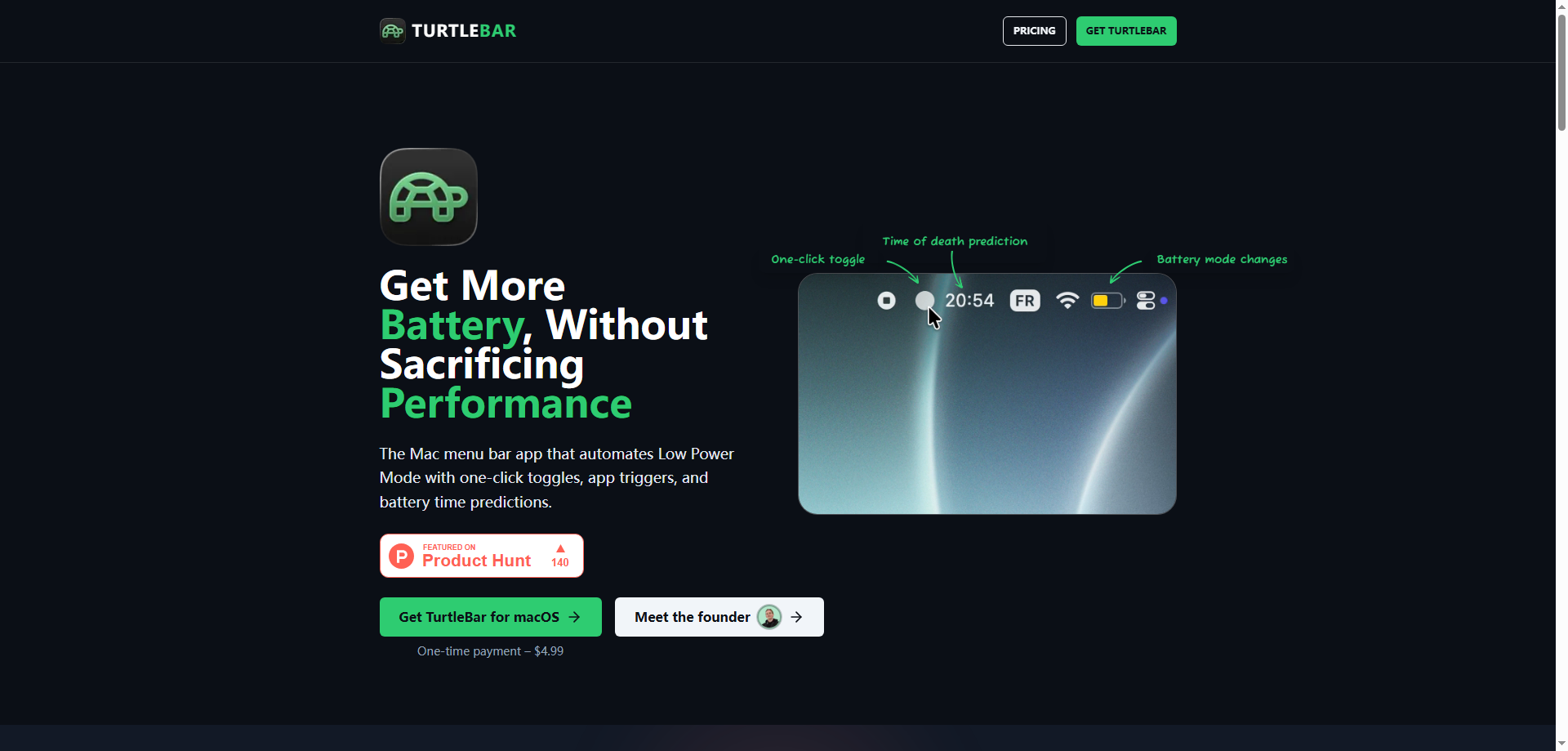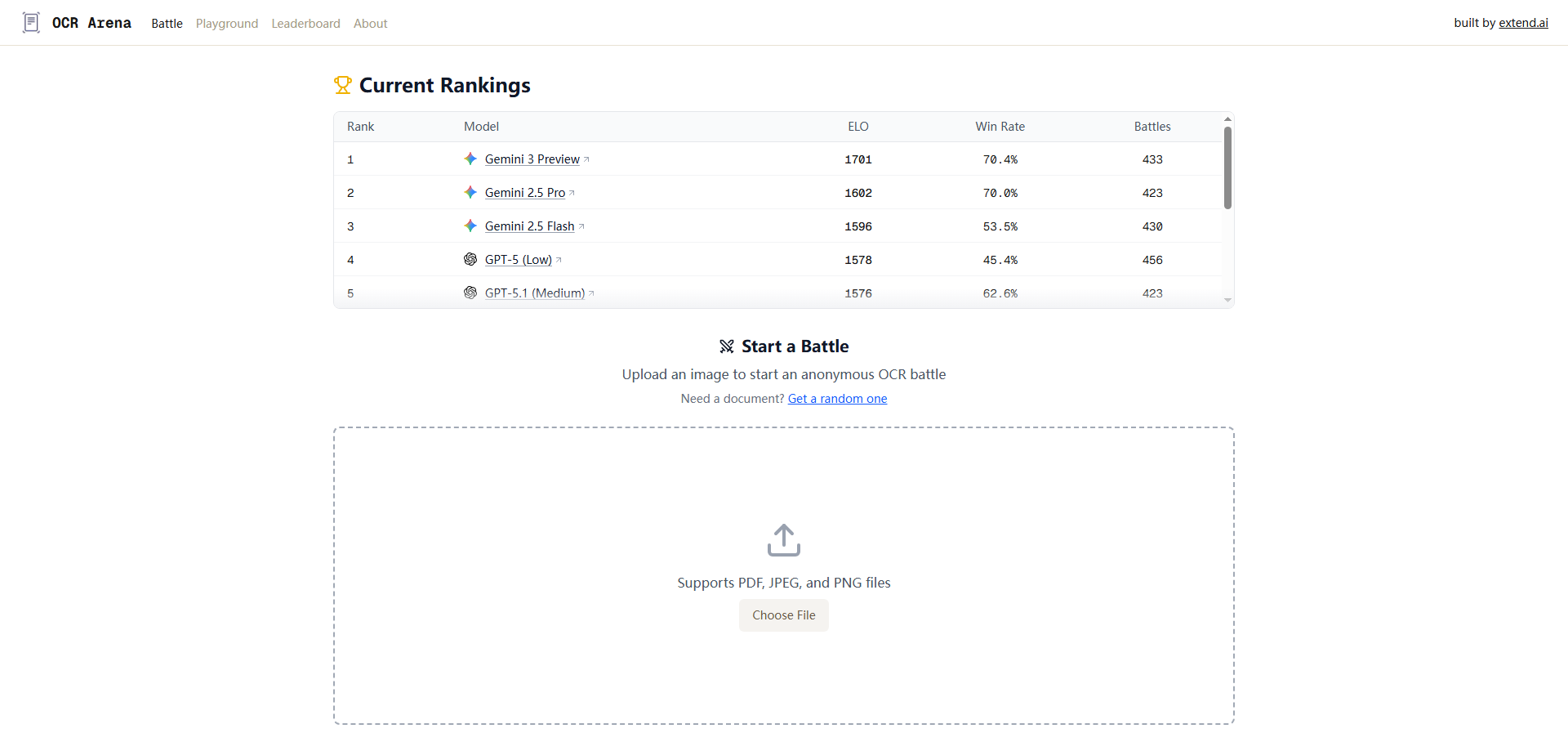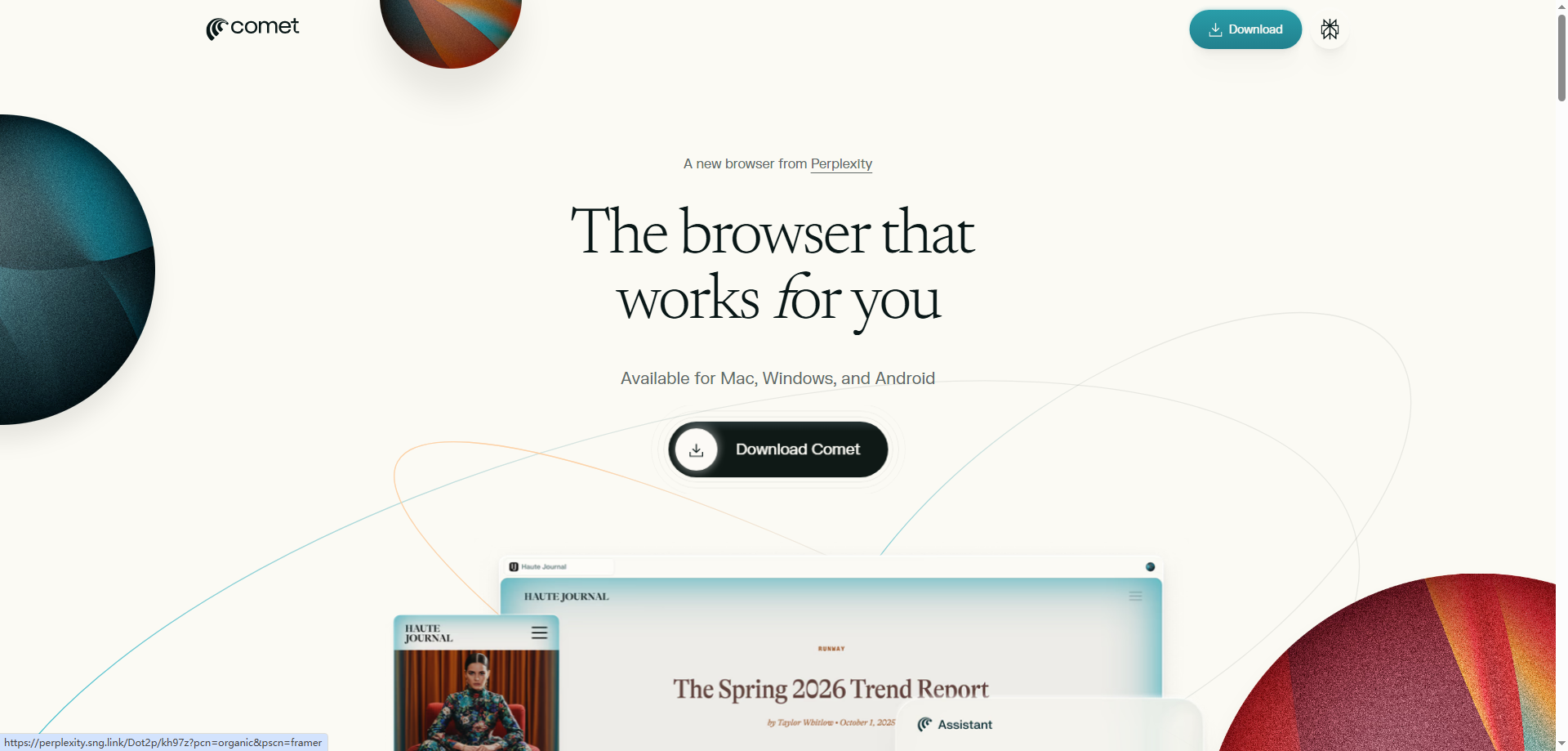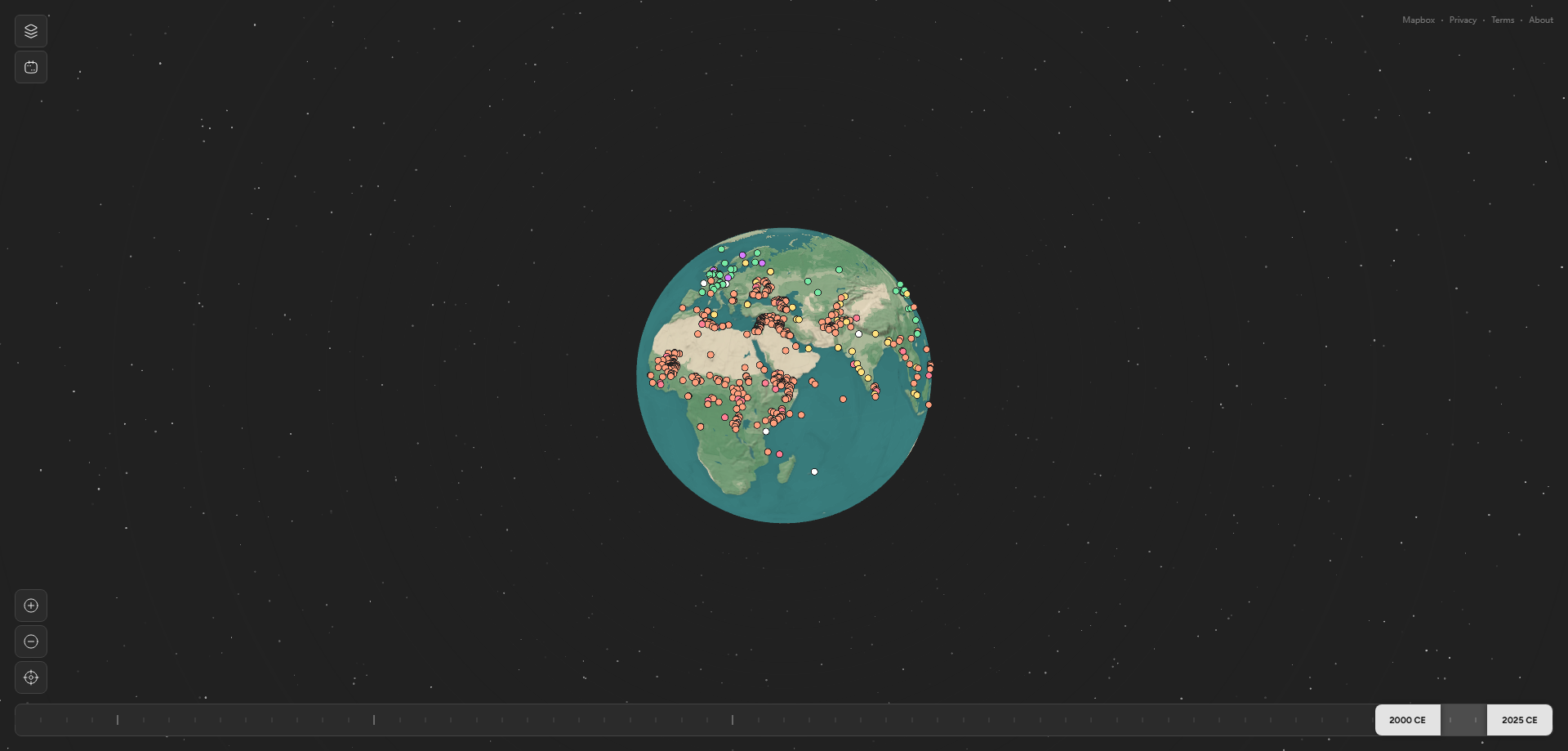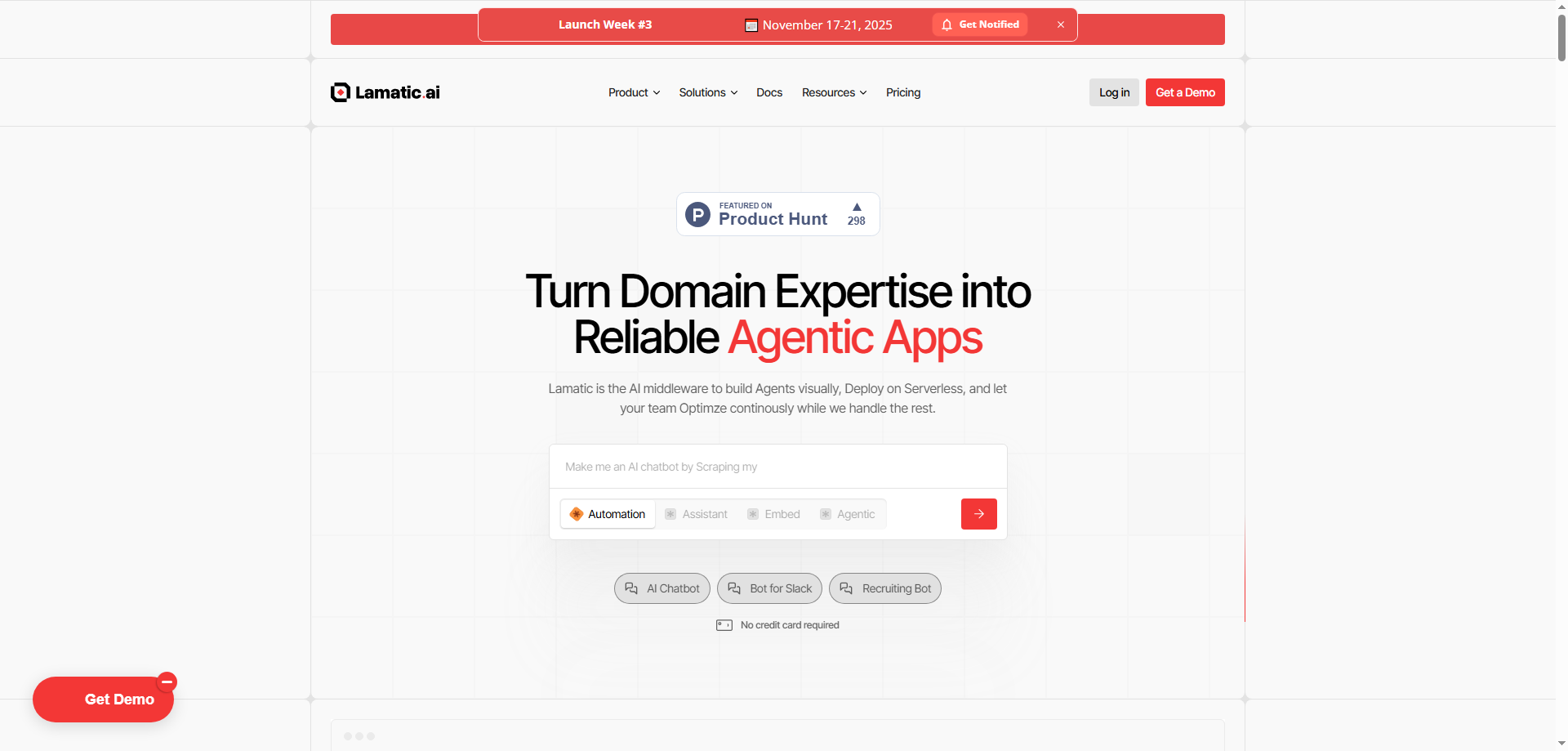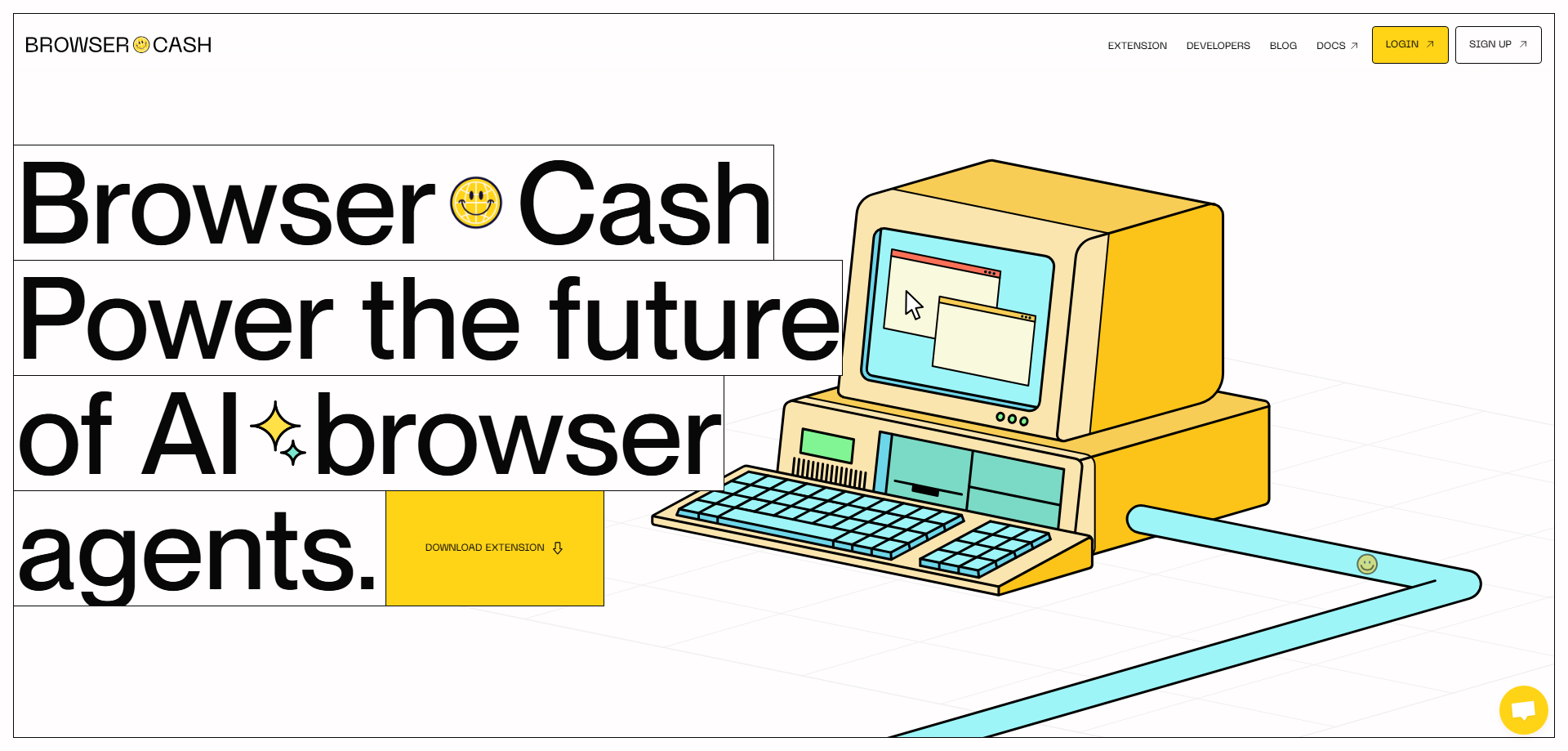The Creative Vision: Why Gubb's "One App for Everything" Might Actually Work
Okay, so when I first saw Gubb's tagline "one app for everything you need," I rolled my eyes so hard. We've all heard this before, right? Every productivity app claims to be the "only tool you'll ever need," and then you end up with 47 apps on your phone doing basically the same things in slightly different ways.
But here's the thing—as I started digging into what Gubb actually does, I realized their creative approach is subtly different. They're not trying to be everything to everyone. They're not building Notion 2.0 or trying to replace your entire workflow. Instead, Gubb is solving something specific: the friction of switching between apps for basic productivity tasks.
The creative insight here is pretty smart. Most of us aren't using complex project management systems or elaborate knowledge bases for our daily tasks. We're just trying to jot down notes, remember what we copied earlier, time our focus sessions, and keep track of what we need to do. For these fundamental tasks, having to jump between Notes, Voice Memos, Clock, and Reminders (on iOS) or equivalent Android apps is genuinely annoying.
What I find creatively interesting about Gubb is the feature selection. They didn't just throw every productivity feature imaginable into an app. They picked a very specific set: notes, voice-to-text, timer, clipboard history, and to-do lists. These five features have something in common—they're all quick-capture tools. You need them in the moment, use them briefly, and move on. That's smart curation.
The clipboard history feature particularly catches my attention creatively. This is one of those features that power users swear by (I use a clipboard manager and can't live without it), but most people don't even know clipboard managers exist. By bundling it with other everyday features, Gubb is introducing a genuinely useful capability to people who'd never seek it out on its own.
The voice-to-text integration is also creatively positioned. Instead of being just a transcription tool, it's integrated into the note-taking flow. I can see myself in a lecture or meeting, recording audio while taking notes, and having it all in one place. That's a thoughtful workflow consideration rather than just feature checklist filling.
What concerns me slightly about the creative vision is whether "one app for everything" can truly be delivered without bloat. The history of productivity apps is littered with tools that started simple and became overly complex. Gubb needs to maintain focus on its core use cases and resist the temptation to add every feature users request.
The timer/focus feature suggests they understand the Pomodoro technique crowd and productivity method enthusiasts. That's a passionate user base that could become early champions if the execution is good. But it also means they're competing with dedicated focus apps like Forest and Focus@Will, which have cult followings.
Overall, the creative vision is solid: reduce app switching friction for basic productivity tasks by thoughtfully bundling complementary features. It's not revolutionary, but it doesn't need to be. Sometimes the best creativity is just smart synthesis of existing ideas.
Can Gubb Replace Your Current Productivity Stack? The Disruption Analysis
Alright, let's get real about disruption potential. Can Gubb actually replace the apps I'm currently using? I decided to think through this seriously because I'm the target market—someone drowning in productivity apps who desperately wants simplification.
Currently, my productivity stack looks like this: Apple Notes for quick notes, Otter.ai for voice transcription, Clockify for time tracking, a clipboard manager called Paste, and Things 3 for to-do lists. That's five apps right there. Gubb promises to replace all of them with one app. On paper, that's compelling. But can it actually do it?
Notes functionality: Can Gubb replace my notes app? Maybe for quick captures and basic note-taking. But if I'm organizing complex information, building knowledge bases, or linking notes together, probably not. Gubb seems positioned for ephemeral notes and quick captures rather than knowledge management. That's fine—most of my notes are actually quick captures anyway. So for 70% of my note-taking, Gubb could work.
Voice-to-text: This is where Gubb could genuinely shine or fall flat. If their voice recognition accuracy is good and the transcription is fast, this could replace dedicated transcription services for many use cases. But here's the thing—apps like Otter.ai have invested heavily in speaker recognition, custom vocabulary, and advanced features. Can Gubb compete on transcription quality? That's the make-or-break question. For basic transcription, probably yes. For professional use with multiple speakers or technical jargon, probably no.
Timer: Honestly, replacing the clock app isn't hard. Any timer that works reliably can do this. The question is whether Gubb's timer integrates well with the focus workflow. Can it track how much focused time I've accumulated? Does it integrate with my to-do list to time specific tasks? These integration points are where Gubb could add value beyond a standalone timer.
Clipboard history: This is where Gubb could be genuinely disruptive. Most people don't use clipboard managers at all. The ones who do are religious about them. If Gubb can introduce this capability to mainstream users through an all-in-one app, that's valuable. My clipboard manager (Paste) costs $15/year. If Gubb includes this for free or as part of a broader package, the value proposition is strong.
To-do lists: This is the most competitive feature. The to-do app market is absolutely saturated with options from simple (Reminders) to complex (Todoist, Things). Can Gubb compete? Only if they keep it simple and well-integrated with other features. If I can voice-record a meeting, have it transcribed, and immediately create to-dos from the transcript—that's differentiation. If it's just another basic task list, why would I switch from my current app?
The real disruption question isn't whether Gubb can replace specialized apps feature-for-feature. It's whether the convenience of having everything in one place outweighs the feature advantages of specialized tools. For casual users and students, I think yes. For power users and professionals, probably not entirely, but maybe for 60-70% of use cases.
Where I see genuine disruption potential is in the student and casual professional markets. Students taking classes, professionals attending meetings, anyone who needs to quickly capture information and organize tasks—Gubb could become their default productivity hub. That's a big market.
But here's the brutal truth: Gubb is competing against free, built-in apps on both iOS and Android. Apple's ecosystem integration (Notes, Reminders, Voice Memos all syncing via iCloud) is powerful. Google's equivalent on Android is similarly integrated. For Gubb to truly disrupt, it needs to be significantly better than "free and built-in." That's a high bar.
My verdict on disruption: Gubb won't replace specialized productivity tools for power users, but it could genuinely disrupt the casual productivity market by offering better-than-default integration of essential features. The key word is "could"—execution will determine everything.
Will Users Actually Adopt Gubb? The Acceptance Question
Now let's talk user acceptance, which is where many "all-in-one" apps fail. The Product Hunt metrics give us some data: 243 upvotes with 29 discussions. That's decent but not spectacular. The discussion-to-vote ratio of about 12% suggests moderate engagement. People are interested but not wildly excited. Let's dig into why.
The switching cost problem: The biggest barrier to user acceptance is switching costs. I already have my notes in Apple Notes, my to-dos in Things, my transcripts in Otter. Moving all that to Gubb is work. Unless Gubb offers one-click imports from major competitors, most people won't bother. Even if they do offer imports, getting people to migrate is hard.
The "jack of all trades, master of none" perception: Users are sophisticated enough to question whether an app that does five things can do them as well as five specialized apps. Gubb needs to overcome this skepticism quickly. They need to prove that their voice-to-text is as good as dedicated services, their clipboard manager is as reliable as standalone tools, etc.
Platform and ecosystem lock-in: iPhone users are deeply embedded in the Apple ecosystem. Their notes sync across devices automatically. Their reminders integrate with Siri. Their timer has Shortcuts support. Gubb needs to match this level of integration, which is incredibly hard for a third-party app. Android users face similar ecosystem advantages with Google services.
Pricing and freemium model: I don't see pricing information for Gubb, but this will massively impact acceptance. If it's free with reasonable limits, adoption will be much stronger. If they charge $10/month, they're competing against free alternatives and cheap individual apps. The value proposition needs to be crystal clear.
Let me think about specific user segments:
Students: This is probably Gubb's strongest market. Students constantly switch between recording lectures, taking notes, setting study timers, and managing assignments. Having everything in one app could genuinely improve their workflow. Students also tend to be more willing to try new apps and less locked into existing ecosystems. If Gubb can get traction in universities, that's a strong foundation.
Freelancers and gig workers: People juggling multiple projects and clients might appreciate Gubb's consolidation. Recording client calls, taking notes, managing tasks, tracking time—it's all relevant. But this segment is also very particular about their tools and often uses specialized software for invoicing, contracts, etc. Gubb would be supplementary rather than comprehensive.
Corporate professionals: Acceptance here will be tough. Most companies have standardized on Microsoft 365 or Google Workspace. Getting employees to adopt a separate productivity app for personal organization is possible but requires Gubb to be significantly better than built-in tools. Integration with corporate systems (Outlook, Google Calendar, Slack) would help but is complex to build.
Casual users/general public: This is the biggest market but hardest to reach. These users stick with default apps and don't actively seek productivity solutions. Gubb would need viral growth or significant marketing spend to reach this audience. The value proposition needs to be immediately obvious—no explaining required.
The clipboard history feature could be a trojan horse for user acceptance. If Gubb markets this feature heavily (maybe even making it the primary pitch with other features as bonuses), it could attract power users who then discover the other features are good enough to replace their separate apps.
Voice-to-text quality will be the make-or-break factor for many users. If transcription accuracy is below ~90%, users will abandon the app quickly. We've all been frustrated by bad voice recognition. Gubb needs to nail this feature because it's one of the most technically demanding.
My take on user acceptance: Strong potential among students and young professionals who aren't deeply locked into existing ecosystems. Moderate potential among freelancers and productivity enthusiasts. Low potential among corporate users and casual mainstream users. The first-year user base will probably be concentrated in the tech-aware, productivity-curious demographic. Expansion beyond that requires exceptional execution and probably significant marketing investment.
Survival Rating: 2.5/5 Stars - Here's Why I'm Concerned
Okay, brutal honesty time. Will Gubb still exist and be thriving twelve months from now? I'm giving it 2.5 out of 5 stars for survival probability. This is the lowest rating I've given in these reviews, and I need to explain why I'm concerned while also acknowledging the opportunities.
Why Such a Low Rating?
The productivity app space is an absolute graveyard. I can't count how many "all-in-one" productivity apps I've seen launch with excitement and shut down within 18 months. The pattern is always the same: initial interest, difficulty gaining traction against free alternatives, inability to monetize effectively, and eventual shutdown.
The competition is absolutely brutal. Gubb is competing against:
- Free, built-in apps with deep OS integration (Apple Notes, Reminders, etc.)
- Well-funded category leaders (Notion raised $343M, Evernote was once valued at $1B)
- Established players with loyal user bases (Todoist, Things, Bear)
- New AI-powered entrants with massive funding
Without significant differentiation or a clear moat, Gubb risks being just another productivity app in a saturated market.
The monetization challenge is severe. Productivity apps struggle to convert free users to paid subscriptions. The typical conversion rate is 2-5%. If Gubb gets 10,000 downloads (which would be good), they might have 200-500 paying users. At $5/month, that's $1,000-2,500/month in revenue. That doesn't cover server costs, let alone development and marketing.
The Product Hunt traction is concerning. 243 votes is okay but not strong. I've seen genuinely disruptive productivity tools get 1,000+ votes and tons of discussion. The relatively modest reception suggests Gubb isn't striking a strong nerve with the Product Hunt community, which is exactly their target demographic.
The technical complexity is underestimated. Building reliable voice-to-text requires significant ML infrastructure and ongoing training. Clipboard monitoring has technical and privacy challenges. Cross-platform sync is notoriously difficult. Each of these features is its own technical challenge, and Gubb is tackling all of them simultaneously.
Why Not Lower Than 2.5?
Despite my concerns, I'm not writing Gubb off completely. The problem they're addressing is real. App switching fatigue is a genuine pain point that many people experience. If execution is good, there's a market.
The feature selection is smart. By focusing on quick-capture tools rather than trying to be a comprehensive productivity suite, Gubb has narrower scope to execute well. That increases chances of success compared to overly ambitious competitors.
The clipboard history angle is genuinely differentiated. Most productivity apps don't include this feature. If Gubb markets it well and executes reliably, it could be their hook—the unique feature that gets people to try the app and then discover they like the other features too.
The timing is reasonable. Remote work and distributed learning have increased demand for productivity tools. People are more willing to experiment with new apps. The market is growing even if competition is fierce.
Critical Risks:
-
User acquisition costs: Without viral growth, acquiring users in the crowded productivity space is expensive. Can they afford sustainable user acquisition?
-
Churn rates: Even if they get users, keeping them is harder. If people try Gubb and return to their familiar apps within a month, the business doesn't work.
-
Technical execution: If voice-to-text quality is poor or clipboard history is buggy, users won't tolerate it. These features need to be rock-solid.
-
Platform restrictions: iOS and Android have strict rules about clipboard access and background processes. Changes to platform policies could break key features.
-
Competition from giants: If Apple or Google adds better integration between their built-in productivity apps, Gubb's value proposition weakens significantly.
Potential Opportunities:
-
Education market: If they can partner with universities or educational institutions, bulk licensing could provide stable revenue.
-
B2B pivot: Positioning Gubb as a tool for small business teams could open enterprise revenue opportunities.
-
Feature licensing: If they build excellent voice-to-text or clipboard management tech, licensing it to other apps could generate revenue.
-
Acquisition target: If they build a solid user base, a larger productivity company might acquire them for technology and users.
-
Niche domination: Rather than being everything to everyone, becoming the definitive tool for students or freelancers could work.
What Would Raise My Rating:
I'd increase this to 3.5-4 stars if I see:
- 50,000+ downloads within 6 months
- Clear pricing model with demonstrated conversion rates above 5%
- Exceptional reviews highlighting specific features that work better than alternatives
- Partnerships with educational institutions or professional organizations
- Evidence of strong user retention (30-day retention above 40%)
My Honest Prediction:
I think Gubb faces an uphill battle for survival. The most likely scenario is modest initial traction followed by struggle to maintain momentum against free alternatives and better-funded competitors. Unless they find a specific niche they can dominate or build exceptional quality in one killer feature, I worry they'll join the long list of productivity apps that shut down after 12-18 months.
The best-case scenario is probably acquisition by a larger productivity company that wants their technology or user base. That's not failure—that's a successful exit—but it means Gubb as an independent product might not survive long-term.
I genuinely hope I'm wrong. We need more competition and innovation in productivity tools. But my rating reflects the harsh realities of this market.
Final Thoughts: What Gubb Needs to Succeed
Look, I want to be clear: I'm not rooting against Gubb. The vision of reducing app switching friction is good. The feature selection is thoughtful. The problem is real. But vision alone doesn't guarantee success in the productivity app market.
If I were advising the Gubb team, here's what I'd say:
Pick one killer feature and make it exceptional. Don't try to be good at five things. Be outstanding at one thing—probably clipboard history since that's most differentiated—and make the other features solid but not the main selling point. Lead with your strength.
Target students relentlessly. This is your most receptive market. Build features specifically for them (like study session tracking, assignment management). Partner with student organizations. Offer student discounts. Own this niche before expanding.
Nail the onboarding and migration. Make it stupid simple to try Gubb without committing. Import from competitors. Let people use it alongside their current tools initially. Reduce switching costs to nearly zero.
Be transparent about pricing. Don't wait to monetize. Figure out sustainable pricing early and be upfront about it. Freemium works, but the paid tier needs clear value.
Focus on retention over acquisition. Getting people to try Gubb is easier than keeping them. Obsess over why people stop using the app and fix those issues relentlessly.
My 2.5-star rating isn't meant to be discouraging—it's meant to be realistic. The productivity app market is brutal, and survival requires exceptional execution, clear differentiation, and probably some luck. Gubb has the foundation to succeed, but they need to execute flawlessly and make smart strategic choices.
For potential users: if you're curious about productivity tools and frustrated with app switching, try Gubb when it's available. Just don't migrate all your data until you're confident it meets your needs. Keep it supplementary until it proves itself indispensable.
Bottom line: Gubb is a well-conceived productivity app entering a saturated market with significant challenges but also real opportunities. Success is possible but far from guaranteed. The next twelve months will reveal whether thoughtful feature integration can overcome the gravitational pull of free, built-in alternatives and established competitors.

